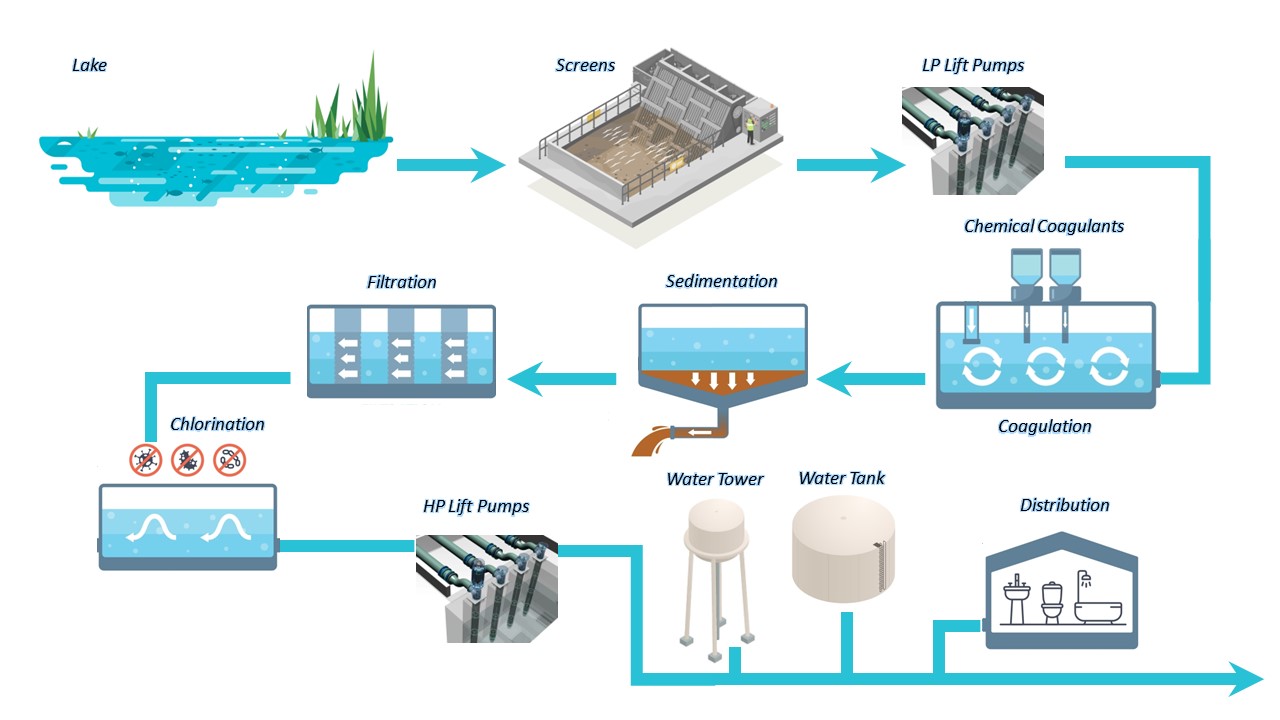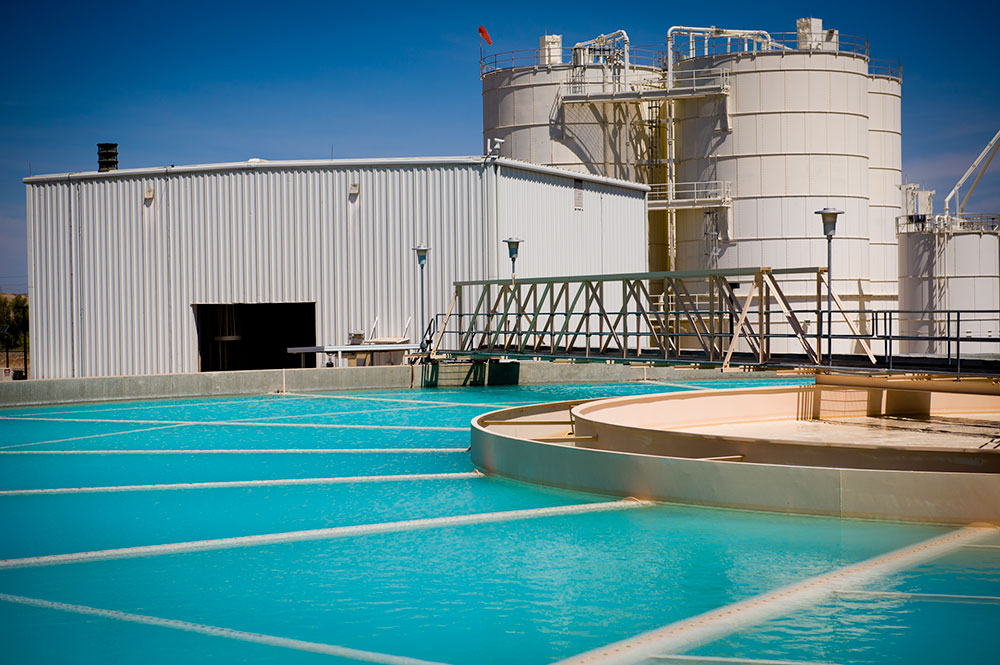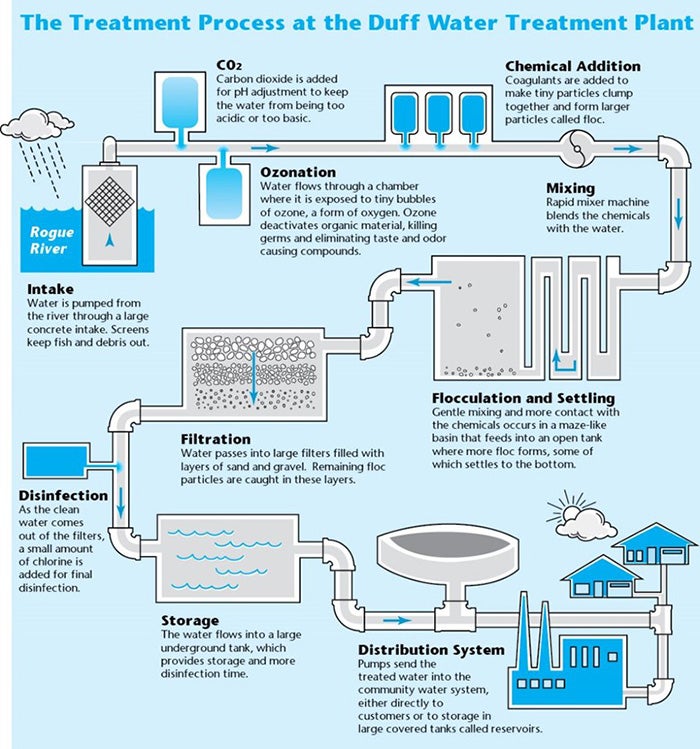Discovering Water Technology Startups: How They Reinvent Lasting Solutions
Water Technology start-ups are emerging as critical players in the mission for sustainable solutions to worldwide water problems. These companies utilize ingenious technologies to boost water efficiency and management. Their contributions address pressing challenges such as scarcity and contamination. In spite of their possibility, they encounter different challenges that could influence their success. Understanding these characteristics drops light on the future of water sustainability and the duty these start-ups may play in forming it.
The Significance of Water Technology in Today's World
As international water shortage escalates, the importance of water Technology becomes significantly obvious. Water Technology plays a crucial duty in resolving the difficulties presented by increasing and diminishing fresh water resources demand. It incorporates a broad variety of innovations, including innovative filtering systems, wastewater treatment innovations, and smart watering remedies. These innovations not only boost the effectiveness of water usage but additionally advertise sustainable techniques throughout numerous sectors, consisting of farming, industry, and metropolitan growth.
Furthermore, the significance of water Technology expands beyond source management. It cultivates strength versus climate change effects, such as dry spells and floodings, by giving adaptive services for water preservation and management. In addition, it supports public wellness by guaranteeing access to tidy and secure alcohol consumption water. As the globe faces growing water-related difficulties, the combination of sophisticated water innovations is crucial for promoting sustainable development and protecting water schedule for future generations.
Ingenious Solutions From Water Tech Startups
While standard strategies to water administration have offered their purpose, a new wave of water tech start-ups is transforming the industry with innovative solutions (Water Technology Startups). These firms leverage advanced technologies to address pushing water issues, such as shortage, contamination, and inefficient circulation. Several start-ups utilize expert system and artificial intelligence to maximize water usage and forecast demand, leading to even more lasting methods
In addition, a number of firms concentrate on establishing sophisticated filtration systems that get rid of toxins and make water risk-free for usage. Others explore decentralized water treatment technologies, enabling neighborhoods to handle their water resources much more efficiently. Some start-ups are introducing clever irrigation options that minimize water waste in farming, advertising ecological preservation.
Case Researches: Effective Water Technology Startups
Various water Technology start-ups have arised as leaders in resolving worldwide water obstacles via cutting-edge techniques. One noteworthy example is Xylem, which concentrates on water analytics and wise infrastructure to optimize water usage and lower waste. Their services have been applied in various communities, showing significant renovations in water administration performance.
One more successful startup, No Mass Water, has actually developed solar-powered hydropanels that draw out water vapor from the air, giving lasting alcohol consumption water in deserts. Water Technology Startups. This Technology has actually been released in several nations, guaranteeing communities have accessibility to clean water
AquaVenture Holdings operates a varied profile of water-as-a-service solutions, attending to water scarcity via desalination and wastewater therapy. Their jobs have proven vital in areas facing severe water lacks, showcasing the possibility of innovative water innovations to develop enduring, positive influences. These instance researches highlight the transformative potential of start-ups in the water Technology industry.
The Duty of Smart Technology in Water Monitoring
Smart Technology plays an essential function in modern-day water monitoring by leveraging IoT applications to maximize source usage. Data analytics boosts performance by supplying workable understandings, while remote monitoring remedies make it possible for real-time oversight of water supply. Together, these innovations change how water is taken care of, advertising sustainability and functional efficiency.
IoT Applications in Water
As water scarcity and management difficulties intensify globally, the integration of Web of Points (IoT) applications has actually emerged as a pivotal service in enhancing water sources. IoT Technology assists in real-time monitoring and evaluation of water supply, enabling a lot more efficient usage and monitoring. Sensing units released in numerous water frameworks can track high quality, circulation rates, and leak, giving valuable data to stakeholders. This data encourages consumers and utilities to make educated decisions, minimizing waste and improving preservation efforts. Furthermore, wise watering systems utilize IoT to enhance water distribution for agriculture, ensuring that crops obtain the correct amount of water at the correct time. Overall, IoT applications are changing typical water management techniques, cultivating sustainability and strength in water source systems.
Information Analytics for Efficiency
Taking advantage of data analytics is vital for enhancing effectiveness in water management. Water check out this site Technology start-ups are significantly using advanced analytics to optimize source allowance and lower waste. By evaluating information from various sources, these startups can determine patterns and trends that educate much better decision-making. Anticipating analytics can anticipate water demand, permitting energies to adjust supply accordingly, thereby lessening scarcities and surpluses. In addition, real-time information handling enables the prompt detection of leakages and inefficiencies within circulation systems, substantially minimizing functional costs. Data-driven understandings encourage stakeholders to execute targeted conservation strategies, fostering sustainable practices. Essentially, integrating data analytics into water management not only improves operations yet additionally advertises long-term sustainability in water resource usage.
Remote Surveillance Solutions
While standard water monitoring systems frequently deal with inadequacies, remote surveillance services are changing how water sources are managed. These ingenious technologies make it possible for real-time information collection and evaluation, permitting stakeholders to check water high quality, flow rates, and usage patterns from afar. Utilizing sensing units and IoT devices, remote surveillance provides instant understandings that promote proactive decision-making. This shift not only enhances operational performance however additionally promotes sustainability by decreasing water waste and maximizing resource allocation. In addition, remote monitoring systems can identify prospective concerns before they intensify, consequently decreasing the risk of contamination or framework failing. As water Technology startups remain to create these services, the sector is positioned for significant developments in lasting water administration practices.
Obstacles Encountering Water Technology Startups
Water Technology startups run into substantial obstacles that can hinder their growth and success. Secret problems consist of securing appropriate funding, maneuvering through complicated regulatory atmospheres, and competing in a crowded marketplace. These obstacles require calculated preparation and technology to conquer.
Financing and Investment Challenges
Technology in water Technology holds immense capacity for addressing global obstacles, startups in this industry usually deal with significant funding and financial investment hurdles. Lots of investors remain cautious, viewing the water industry as risky due to its complicated governing landscape and long advancement timelines. In addition, startups often have a hard time to show prompt profitability, which can prevent possible backers. Conventional financial backing might ignore water technology, favoring sectors with quicker returns, such as technology or durable goods. In addition, securing grants and federal government funding can be competitive and taxing, further complicating monetary security. Water Technology Startups. As a result, numerous innovative water Technology startups discover themselves in a precarious position, needing creative financing strategies to browse these financial barriers and accomplish their objectives
Regulatory Conformity Issues
Steering regulative compliance is a significant difficulty for start-ups in the water Technology field, as they have to face a myriad of neighborhood, nationwide, and worldwide guidelines. These policies typically encompass water quality criteria, environmental protection regulations, and security protocols, which can differ extensively across territories. Startups might locate it tough to browse this facility landscape, particularly when scaling procedures or going into brand-new markets. The prices connected with conformity can be substantial, diverting sources far from technology and product development. Additionally, delays in acquiring essential authorizations or certifications can prevent growth and market entry. A robust understanding of governing structures is important for these startups to guarantee sustainable procedures and avoid potential lawful effects.
Market Competition Characteristics
As water Technology start-ups arise in a competitive landscape, they face numerous difficulties that can restrain their growth and innovation. Developed companies frequently dominate the marketplace, leveraging sources and experience to preserve their settings. Startups struggle with minimal financing, which restricts r & d abilities, making it difficult to complete on Technology and rates. Furthermore, the rapidly developing nature of water innovations demands consistent adjustment, further stressing startup resources. Governing difficulties can make complex market entry, as conformity with ecological standards this link is vital yet costly. Finally, bring in proficient ability in a specific niche area provides one more challenge, as larger companies might news use more attractive employment bundles. As a result, these aspects produce an intricate environment for water Technology startups intending to succeed.

The Future of Water Technology and Sustainability

The future of water Technology will likely concentrate on incorporating synthetic knowledge and information analytics to maximize water circulation and use patterns. By harnessing real-time information, business can predict scarcities and handle resources a lot more effectively. Lasting practices will certainly become a keystone of the market, encouraging round economies where water is recycled and treated. Inevitably, the continued evolution of water Technology will certainly be essential in creating resistant facilities with the ability of satisfying the obstacles presented by climate modification and population growth while advertising environmental stewardship.
Frequently Asked Questions
What Are the Key Metrics for Evaluating Water Technology Startups?
Trick metrics for assessing water Technology start-ups consist of market capacity, scalability, customer acquisition prices, revenue growth, technology development, regulatory conformity, ecological effect, affordable advantage, and team proficiency, all critical for identifying long-term stability and success.
Exactly How Can People Support Water Technology Innovations?
People can support water Technology innovations by investing in startups, promoting for policy modifications, taking part in community efforts, sharing understanding regarding lasting practices, and promoting understanding of water issues through social media sites and regional occasions.
What Prevail Funding Sources for Water Technology Startups?
Typical financing sources for water tech start-ups consist of venture capital, government grants, crowdfunding systems, angel investors, and company collaborations. These economic avenues help assist in advancement and development in lasting water monitoring innovations.

Which Industries Benefit The Majority Of From Water Technology Advancements?
Industries such as agriculture, energy, production, and community services benefit significantly from water Technology innovations. These developments boost water efficiency, reduce prices, and promote sustainable practices, eventually adding to environmental conservation and resource management.
Exist Any Kind Of Governing Difficulties Details to Water Technology?
Yes, water Technology deals with governing challenges, including compliance with ecological requirements, permitting procedures, and varying local guidelines. These complexities can hinder innovation and slow the application of new innovations in the water management sector.
Water Technology start-ups are arising as crucial players in the pursuit for lasting remedies to worldwide water concerns. As worldwide water shortage escalates, the importance of water Technology becomes significantly evident. Others explore decentralized water treatment innovations, enabling areas to manage their water resources extra efficiently. One more effective startup, Absolutely no Mass Water, has actually established solar-powered hydropanels that remove water vapor from the air, offering sustainable drinking water in dry areas. Their jobs have proven essential in regions dealing with extreme water lacks, showcasing the capacity of cutting-edge water innovations to develop lasting, positive impacts.